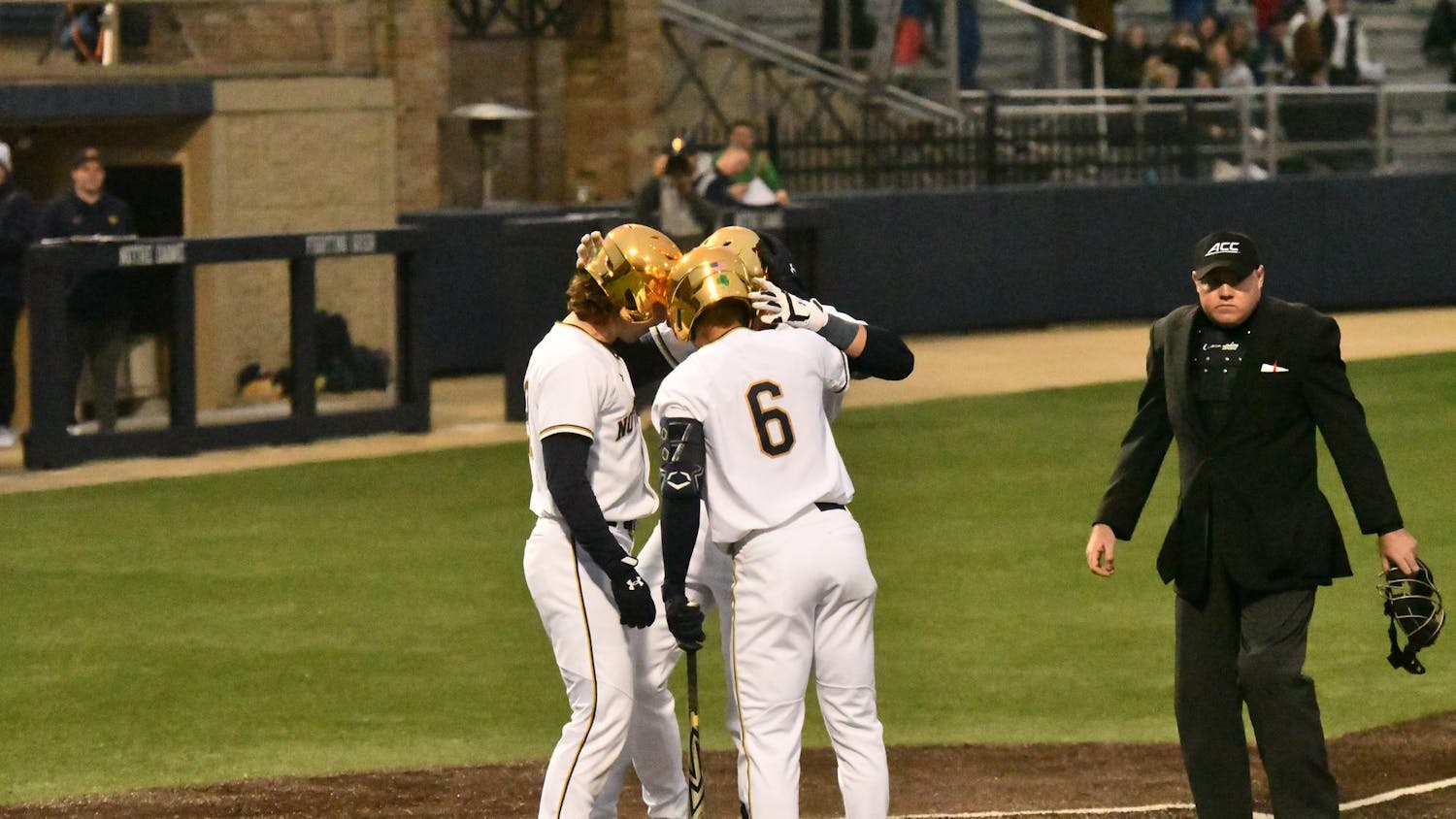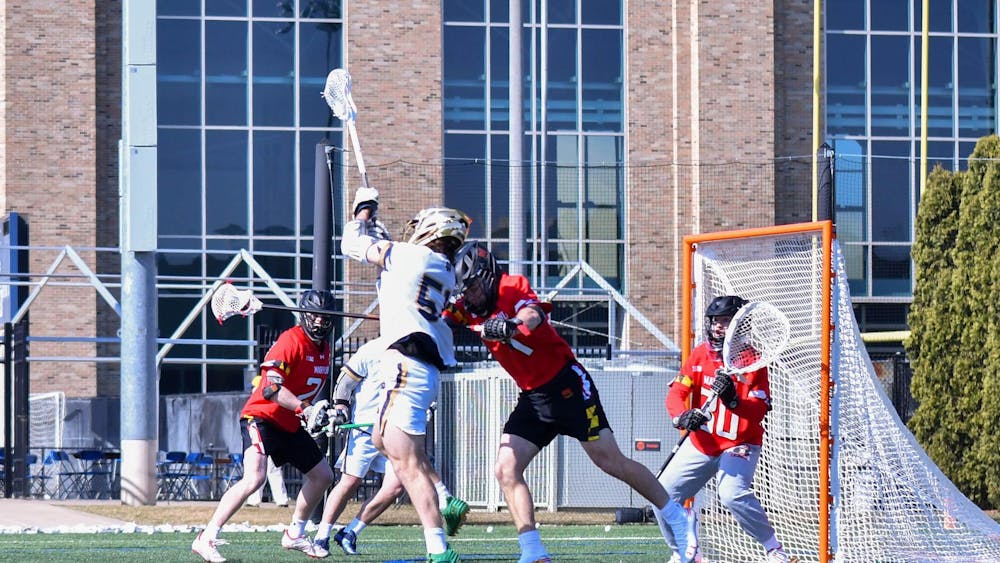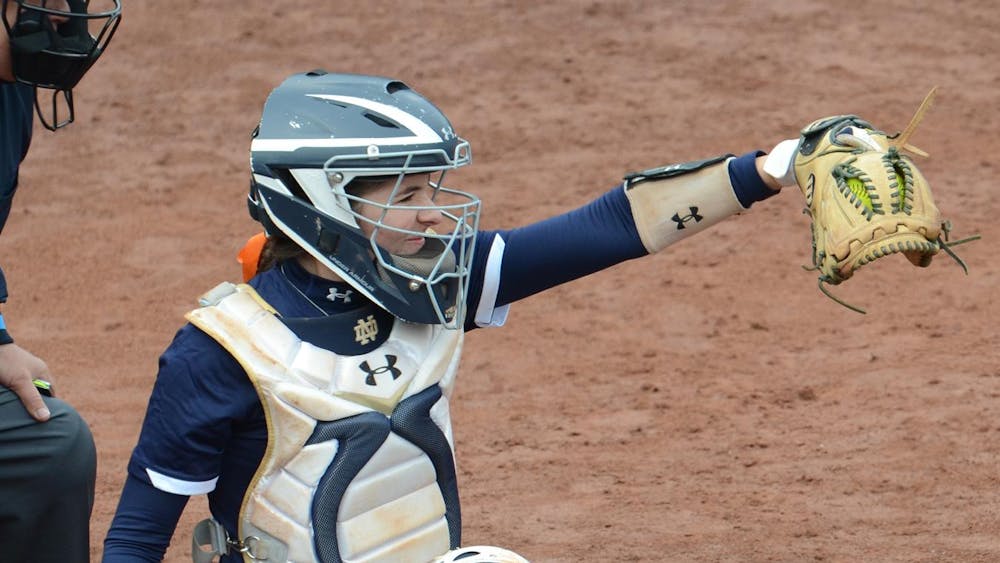For better or for worse, money is everywhere, and Notre Dame is no exception.
We pay nearly $60,000 to go to this university, our football team brings in more revenue than nearly every other program in the country and our top-ranked business school is practically a feeder to Wall Street.
That being said, money also has its shortfalls.
We have all undoubtedly heard many clichés about the troubles money brings to people, from the Bible proclaiming money is the root of all evil, to Biggie Smalls reminding us, “Mo Money, Mo Problems.”
This idea of money proving to be a detriment to society has also pervaded the world of sports. People are sick of hearing about hundred-million-dollar contracts, exorbitant TV rights fees and nearly a billion dollars generated by an organization for “amateur” sports.
Granted, many of these points are valid. It is a bit absurd to pay young men playing a children’s game more money than nearly every doctor, lawyer, banker, etc. will ever see. Skyrocketing ticket prices and personal seat licenses have driven out many fans, and leagues, teams and players sometimes appear to care more about their paychecks than about the game they represent.
However, money has also revolutionized sports in many positive ways.
It has given us free agency. Free agency is a relatively new phenomenon in sports. Before it was instituted, the only way a player could change teams was through a trade. Now, all of the four major American sports have free agency, which has added excitement, drama and competitiveness.
Thanks to free agency, a team that had a bad year isn’t doomed to be cellar-dwellers for the foreseeable future, as all it takes is one splash in free agency to go from worst to first. Free agency, along with revenue sharing, enables small-market teams to compete with the money-loaded behemoths from New York, Boston or Los Angeles.
Free agency creates buzz for the sport long after the season ends. Huge hype surrounds MLB’s winter meetings, even though opening day is still months away. During the dog days of summer, the sports world was captivated to see where LeBron James would take his talents, and barring anything shocking, we will experience that drama once again this summer. Regardless of how you feel about LeBron or his decision, you must admit that the prospect of the greatest player in the world coming to your team was incredibly exciting.
Money has also given us more games. We have an insatiable appetite for sports, and money has allowed sports leagues to graciously fulfill our desire. Why is it that on any given night in the fall you can find a college football game on TV? How is it possible for seemingly every college in America to play in a bowl game? Why did baseball add a second wildcard berth, and why is the NFL considering expanding both the regular season and the playoffs?
The answer to all these questions is, of course, money.
One big rebuttal to all of this comes from the college ranks. Recently, many schools have switched conference alignments and, apparently, sold their souls in the process. Teams on the East Coast are playing in the Midwest, teams in Texas are playing in the east and a small, Catholic school from northwest Indiana is playing in the ACC.
While these new conferences are geographically strange, they are also innovative and mark a new day for college sports.
While some old rivalries have died in the process, new ones have emerged. Syracuse may have lost its rivalry with Villanova when it switched to the ACC, but it has a gained a new rivalry in Duke. In just one season together, these two basketball powers have already given us two of the best games of the year.
In college football, Notre Dame may have ended its yearly contest with Michigan, but only so it could schedule teams like the defending national champions, Florida State and its Heisman-winning quarterback in what is sure to be one of the most anticipated games of the 2014 season.
So, while many experts, pundits and fans continue to complain about money ruining the games they love, I will not be one of them. Instead, you’ll find me watching Syracuse vs. Duke, Notre Dame vs. Florida State or a dramatic single-elimination playoff game and soaking in the beautiful world of sports that money has bestowed upon us.
Contact Alex Wilcox at awilcox1@nd.edu













